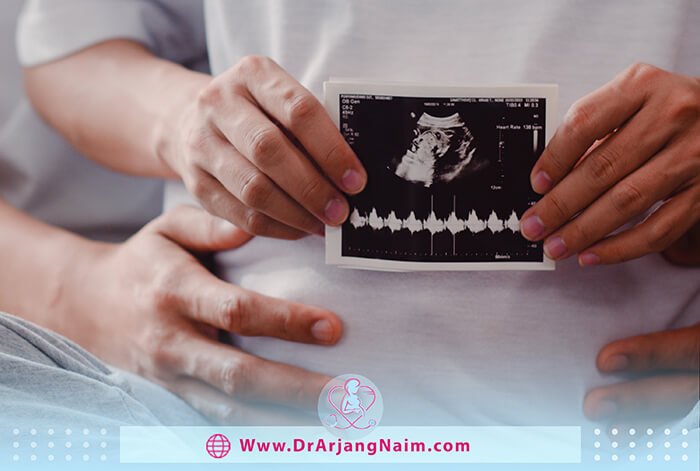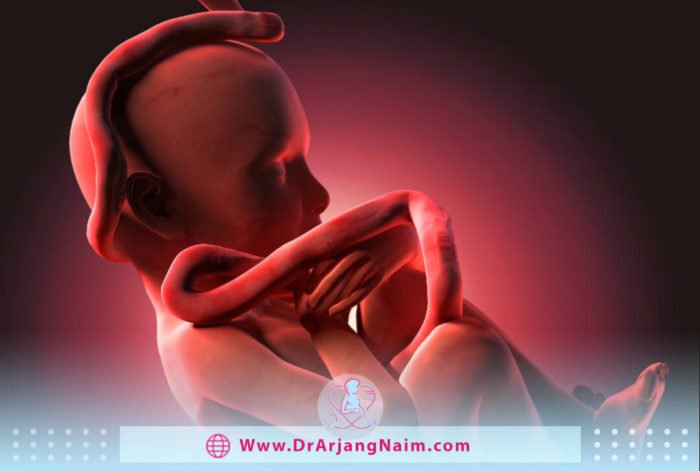Miscarriage is a very sad happening that comes with emotional consequences, including depression, anger, and fear. There are countless reasons why this is beyond your control. But one of the most important parts of losing a pregnancy is not knowing the causes of it. Losing a pregnancy does not necessarily mean having a fertility problem. Most women (87%) with a pregnancy loss have subsequent pregnancies and deliveries.
What is a miscarriage?
It is the spontaneous end of a pregnancy. About 1/3 to 1/2 of all pregnancies occur before a woman misses a period or knows she is pregnant.
Miscarriage is most likely to occur in the first three months before 20 weeks of pregnancy. Only 1% of it occurs after 20 weeks of pregnancy. These are called late miscarriages. Losing a pregnancy in the first weeks is similar to a menstrual period and is accompanied by spotting, bleeding mild muscle cramps, and back pain. As it progresses, it leads to heavy bleeding with clots and severe pain due to muscle contractions.
It is a fairly common experience but does not make it easy. By trying to understand what can cause, what increases the risk, and what medical care is needed, we try not to have a pregnancy loss.
Symptoms
Symptoms of losing pregnancy vary depending on the stage of your pregnancy. The most common symptom is vaginal bleeding, ranging from mild spotting to severe bleeding or blood clots. However, light bleeding in the first trimester of pregnancy is relatively common and does not necessarily mean miscarriage. Other symptoms include:
- A discharge of tissue from your vagina
- Cramping and pain in your lower tummy
- Mild to severe back pain
Causes
There are many reasons why a pregnancy loss may occur, although the cause is often unclear. If it occurs in the first trimester of pregnancy, it is usually due to problems with the unborn baby. If it occurs in the second trimester, it is usually due to problems for the mother.
First trimester
Most miscarriages occur because of fetal abnormalities, such as chromosomal abnormalities. Chromosomes contain a precise set of instructions that control a wide range of factors, from how cells grow to the color of a baby’s eye. Disruption of the chromosomes means that the fetus will not be able to grow normally.
Another factor that causes pregnancy loss is placental abruption. The placenta is the organ that connects the mother’s blood to the baby. If there is a problem with the placenta, it can lead to it.
Second-trimester
Several long-term (chronic) health conditions can increase the risk of miscarriage in the second trimester, especially if untreated or poorly controlled. These include:
- Lupus
- Severe high blood pressure
- Diabetes
- Kidney disease
- Thyroid gland malfunction
- Infections
- Food poisoning
- Womb structure
- Weakened cervix
Risk factors

Although there is a risk of miscarriage for all women, there are factors that can increase the risk of pregnancy loss in the mother.
Body Trauma
Trauma can damage your body or mind. Trauma can be caused by sudden physical injuries, such as a car accident, a fire, a fall, a victim of violence, or stress. Pregnancy outcomes may vary depending on the type of trauma experienced and the severity of the trauma. Damage to the placenta and uterus can cause miscarriage.
Age
Aging increases the risk of losing the pregnancy. At age 35, you are about 20 percent more likely to have a pregnancy loss. At age 40, the risk increases to 40 percent; at age 45, it’s about 80 percent.
Previous miscarriages
Women who have had two pregnancy losses. In a row, they are at higher risk.
Chronic conditions
Some chronic conditions, such as poorly controlled diabetes, blood clotting problems, immune system disorders, or hormonal disorders, such as polycystic ovaries, can increase the risk of miscarriage.
Exposure to harmful chemicals or radiation
The first trimester is the most critical period in fetal development regarding vulnerability to teratogens. Exposure to teratogens during pregnancy can have different effects from one pregnancy to another. Some people may not have side effects, while others may give birth to babies with birth defects that can cause miscarriage.
Medications
Some medications are associated with an increased risk of miscarriage, so it’s good to ask your doctor about medications that are safe during pregnancy. Medicines used during or before pregnancy may also increase the risk of it.
Smoking, alcohol, and illicit drugs
Smoking, drinking alcohol, and using drugs during pregnancy can all increase the risk of losing a pregnancy. Excessive caffeine consumption can also increase the risk of it.
Weight
Being underweight or overweight is associated with an increased risk of miscarriage. Obesity (a body mass index of over 30) is associated with a 67% increased risk of pregnancy complications, including miscarriage. Weight loss may reduce the risk of it in obese women, even those with a history of losing the pregnancy. Many studies have involved women with polycystic ovary syndrome (PCOS), a condition in which more women are overweight. Even among this group of women, a clear relationship exists between weight loss and the rate of losing a pregnancy.
Invasive prenatal tests
Some diagnostic tests during pregnancy, such as placental villus sampling or amniocentesis used to diagnose fetal chromosomal abnormalities, may slightly increase the chance of miscarriage.
Clotting disorders
Clotting disorders cause your body to produce blood clots too naturally. Blood clots can form in the placenta, preventing nutrients and oxygen from reaching the baby and leading to miscarriage.
Types
There are different types of miscarriages. The obstetrician will determine its degree depending on the symptoms and stage of pregnancy. These steps include:
- Complete: All the pregnancy tissues have been removed from your body. The bleeding subsides quickly. Complete abortion can be confirmed by ultrasound or curettage surgery.
- Incomplete: Some placental tissue and material have been excreted, but some remain in the body. Abdominal or back pain is accompanied by bleeding from the cervix.
- Threatened: Uterine bleeding during pregnancy is accompanied by back pain and cramping. The cervix is closed. This bleeding is often the result of implantation.
- Unavoidable: Bleeding, cramping, and dilation of the cervix indicate that pregnancy loss is inevitable.
- Missed: The pregnant woman lost her pregnancy without realizing it. At this time, the fetus died but there is not any expulsion. Symptoms include the disappearance of pregnancy symptoms and the absence of fetal heartbeat, which can be heard on ultrasound.
- Septic: An infection has occurred in your uterus.
- Recurrent: Have three or more pregnancy losses in the first trimester.
Foods that can cause miscarriage
The risk of losing a pregnancy is high in the first trimester of pregnancy, so avoid certain foods during these three months. These foods include:
- Smoked and refrigerated seafood should be avoided as they may become infected with Listeria. Listeria can cause an infection that can be severe and lead to miscarriage.
- Raw eggs: Pregnant women should avoid eating raw eggs. Make sure the egg whites and egg yolks are solid after cooking. This helps prevent the potential risk of food poisoning and Salmonella.
- Unpasteurized milk: Consumption of unpasteurized milk during pregnancy can cause poisoning.
- Drumstick Tree: One of the most dangerous foods that can lead to miscarriage in early pregnancy is Drumstick Tree. Because the drumstick tree contains alpha-sitosterol, with the estrogen-like structure that can lead to it.
- Animal Liver: The liver contains large amounts of vitamin A and cholesterol. Excessive consumption of these substances can adversely affect the fetus and cause pregnancy loss.
- Aloe Vera: Pregnant women should avoid foods containing aloe vera in the first trimester of pregnancy.
- Sprouted Potato: Potatoes contain various toxins during germination that are harmful not only to pregnant mothers’ health but to all people’s health. Potatoes contain solanine with green sprouts, which can harm fetal growth.
- Papaya: Papaya contains an enzyme that can increase uterine contractions.
Prevention

In many cases, the cause of the miscarriage is not known, and you cannot prevent it. But there are ways to prevent it as much as possible. These methods include:
- See obstetrician regularly
- Avoid drugs, alcohol, and smoking while pregnant
- Maintain a healthy weight during and before pregnancy
- Have a balanced and healthy diet
- Try to avoid infections as much as possible. Wash your hands thoroughly, and stay away from people who are already ill
- The maximum caffeine intake during the day is 200 mg.
- Use supplements before and during pregnancy to make sure all the necessary vitamins reach the fetus
The bottom line
Miscarriage certainly feels uncomfortable for any pregnant mother. In case of this problem, if you experience severe symptoms, go to the emergency room, and in case of milder symptoms, be sure to contact your obstetrician. Remember that pregnancy loss does not mean that you cannot experience the feeling of motherhood, but by referring to an obstetrician, you can experience a healthy pregnancy by eliminating the possible problem.
Additional questions
- Is heavy bleeding with a clot normal?
The amount, length, and frequency of menstrual bleeding vary monthly and from person to person. But if you pass blood clots larger than a grape, seek medical attention. Large blood clots can be part of a heavy period that may indicate a serious medical problem.
- What is pregnancy discharge like?
Healthy vaginal discharge during pregnancy is called leukorrhea. It is similar to daily discharge, meaning it is thin, clear, or milky white and has only a mild or no odor.
- Can hyperthyroidism cause miscarriage?
Inadequate treatment of hyperthyroidism early in pregnancy may have been implicated in spontaneous abortion, and high levels of maternal thyroid hormone present in late pregnancy may be associated with an increased risk of stillbirth.
- What are the complications after abortion?
Fatigue, loss of appetite, and difficulty sleeping are common after a miscarriage. You may also feel guilt, shock, sadness, and anger.
- Can salmonella cause early miscarriage?
There are case reports of Salmonella bacteria causing amniotic fluid infection. These infections are rare but can be serious and lead to miscarriage.
References
https://www.nhs.uk/conditions/miscarriage/causes/
https://my.clevelandclinic.org/health/diseases/9688-miscarriage
https://www.pregnancybirthbaby.org.au/miscarriage
https://www.plannedparenthood.org/learn/pregnancy/miscarriage
https://www.webmd.com/baby/guide/pregnancy-miscarriage
https://www.marchofdimes.org/find-support/topics/miscarriage-loss-grief/miscarriage




